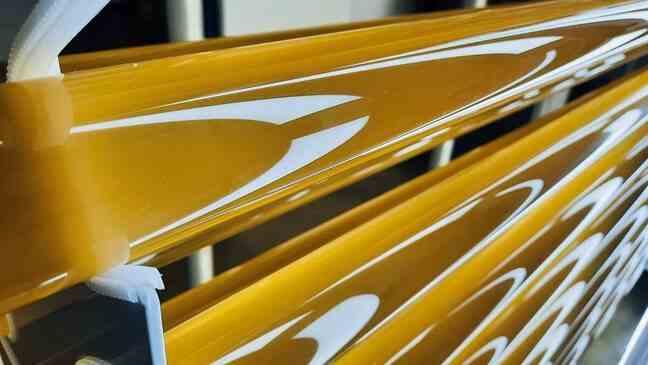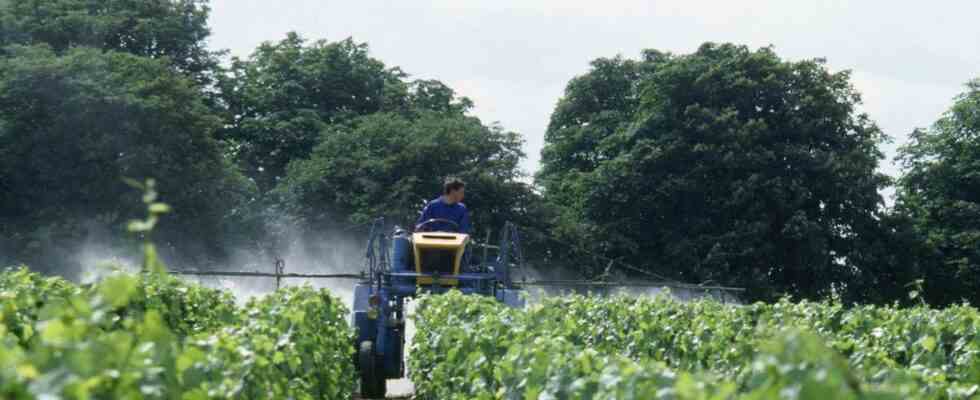microalgae Amphidinium carterae can it become, in the coming years, an alternative solution to synthetic pesticides for treating vines and agricultural crops? That’s what ImmunRise Biocontrol, founded in 2015, hopes. Based in Cestas (Gironde), it announced at the end of July a fundraising of five million euros to accelerate the development of this antifungal microalgae. 20 minutes interviewed its CEO, Laurent de Crasto, agricultural engineer and oenologist.
What does this fundraising represent for your company?
This is the last step before commercialization. This fundraising will allow us to finalize our biopesticide, obtain approval in Europe, before marketing authorization, which we hope by 2026.
What are the properties of this microalgae?
It is a marine microalgae which, once produced on our premises, comes in the form of a brown paste that is mixed with other products to stabilize the molecules it contains. It is these molecules that act against the fungi that ravage crops, such as mildew. This does not change anything for the farmer compared to his current practices, since he puts this concentrate in his sprayer, to which he adds water. This product is 100% biodegradable, which means that you have no residue in the soil or in the product that is harvested, unlike the chemical product.

On the other hand, it takes more treatments with this product, compared to a synthetic pesticide?
Our product rather targets mildew, which develops when the weather is wet, and rather than treating systematically whether it rains or not, as we tend to do with a synthetic product, here we will ask the winegrower or the farmer to treat when necessary. So if it rains a lot, it will actually be necessary to treat more often. Conversely, this summer there would have been almost no need to treat. This requires more rigor, it is the green revolution that we expect from farmers, and it is at this price that we will no longer have chemicals in our soils. Biocontrol brings its share of constraints, which should however be reduced in the future thanks to new technologies.
Is this product more expensive than a classic product?
The cost of production is related to the size of the factory. If you produce two kilos, it is very expensive, if you start producing two tons it drops, and we hope to produce between 50 and 100 tons from the start, then the price drops very quickly. Our objective is to remain within market prices, to impact all agriculture and viticulture. Initially, we are targeting viticulture and seed treatment, but this algae acts on several fungi, and therefore impacts all agriculture: sunflower, wheat, tomato, vine, apple…
Where will the production take place?
Today, we are a dozen people, mainly researchers and engineers. For the production part, we are in partnership with companies specializing in the production of microalgae, with Fermentalg in Libourne and Urbanalgae in Saint-Jean d’Illac. We are testing the production of our microalgae with their tools and the first results are interesting. The testing of the finished product on the vine is done with the ISVV (Vine and Wine Institute) and with partner châteaux, such as Mouton-Rothschild, Smith Haut Lafitte, in the Médoc or in Cognac… The objective is to compile the results to have the product certified.
You are not alone in this biopesticides market, how can you succeed in establishing yourself?
It is a sector which is enormous in terms of potential, and I am convinced that other products should not be seen as competitors. You have to understand that what is important is not to release a product that works for everything. This is the problem with glyphosate, which was used in all its sauces, because it was the only herbicide that worked well, and which was easy to use, today we are measuring the consequences. It is therefore necessary to develop an arsenal of solutions which, taken end to end, provide several answers. We must have a sustainable use of pesticide products, otherwise they are no longer effective. If you always use the same product to fight a disease, it will eventually find a parade. Conversely, if you alternate between seaweed, copper and another product, you attack the fungus from all sides, and it no longer knows how to adapt.

